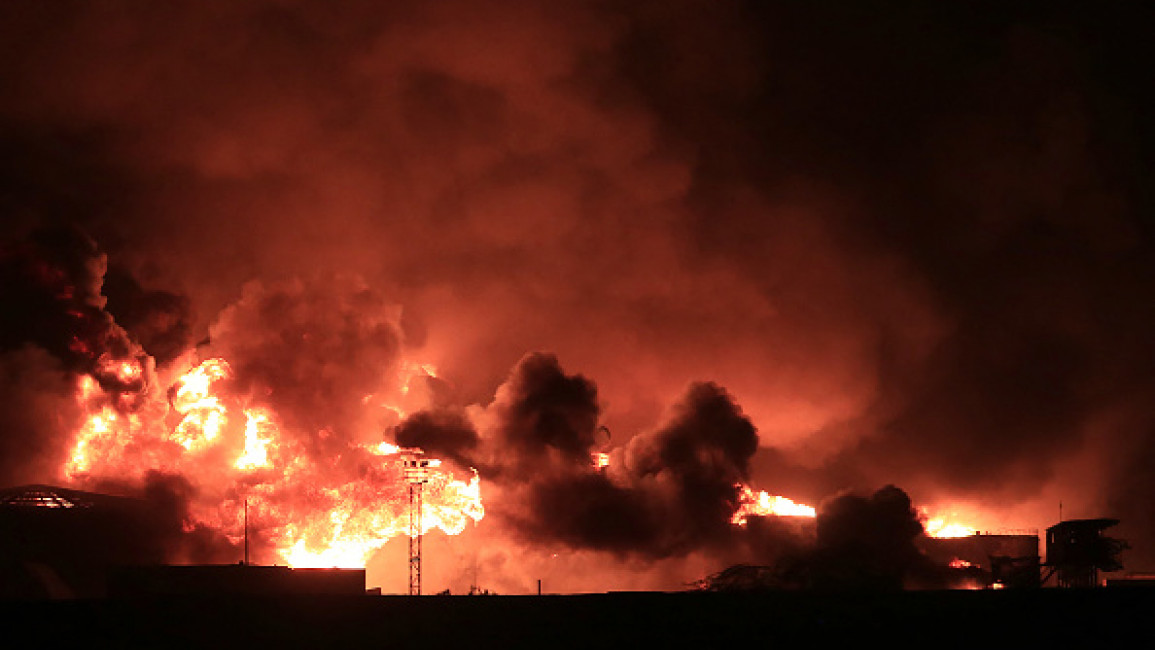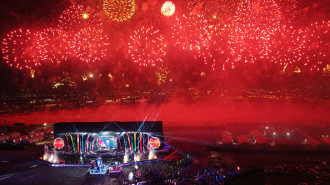How did the MENA region react to Israel's bombing of Yemen?
Israeli fighter jets on Saturday struck multiple targets in and around the port city of Hodeidah in Yemen, which is run by the Houthi rebel group.
The Israeli attack killed at least six people, wounding 87 more, and was retaliation for a Houthi drone attack on Tel Aviv on Friday.
It marks the first time Israel has directly launched an attack on Yemen and yet another indication that Israel’s war on Gaza could lead to a wider regional war.
The Houthis are part of the self-defined anti-Zionist, Iran-led ‘Axis of Resistance’ group, along with Lebanon’s Hezbollah and the regime of Bashar al-Assad in Syria, which has prompted fears of further reprisals.
The UN’s Secretary-General Antonio Guterres said in a statement issued by his spokesperson that he "remains deeply concerned about the risk of further escalation in the region", calling on both sides to exercise "maximum restraint".
The Houthis have already retaliated with a projectile launched at the Israeli city of Eilat, though it was intercepted by the military and caused no damage or casualties.
Israel's Defence Minister Yoav Gallant said: "The blood of Israeli citizens has a price," adding more operations against the Houthis would follow "if they dare to attack us".
Since just after the beginning of Israel’s war on Gaza, the Houthis have been attacking Israeli or Israel-aligned ships in the Red Sea out of solidarity with the people of Gaza.
This has led the US, UK and others to launch airstrikes on Houthi-controlled Yemen, but these have not deterred the group from enacting its attempted blockade.
The group has also launched several direct attacks on Israel, most of which have been successfully intercepted and thwarted. However, Friday’s attack on Tel Aviv by the Houthis marked a significant escalation, with the group using a more sophisticated Iranian-made drone to target the centre of the Israeli city and killing one civilian.
The rebels have also been locked in a war with a Saudi Arabia-led coalition since 2015 after they launched an armed coup against the UN-recognised transitional government of Yemen. In the last year, while Riyadh still remains officially at war with the Houthis, the fighting has largely stopped between the two.
The group controls large swathes of Yemen, including the capital Sana’a.
The New Arab looks at how the region has reacted to Israel's unprecedented attack on Yemen.
Saudi Arabia
Saudi Arabia on Sunday denied it had anything to do with the Israeli air strikes on Yemen’s city of Hodeidah and that it will not allow anyone to use the Kingdom’s airspace for offensive purposes.
"The Kingdom has no relation or involvement in the targeting of Hodeidah, and the Kingdom will not allow any entity to violate its airspace," Brigadier General Turki Al-Malki, spokesman for the Saudi Ministry of Defence, said in a statement on X.
Egypt
In a statement on Saturday, Egypt, which has previously been part of the Saudi-led anti-Houthi coalition, expressed "deep concern regarding Israeli military operations in Yemen", warning that these actions are "intensifying tensions across multiple fronts".
The Egyptian Ministry of Foreign Affairs emphasised "the need for international efforts to ensure regional security and stability", warning that the ongoing developments in Gaza could lead to a broader conflict.
Iran
In a statement on Saturday evening, the Iranian foreign ministry spokesman Nasser Kan'ani strongly condemned “the Zionist Israeli regime’s aggression on the Hodeidah port city in Yemen earlier in the day,” according to the state-run Mehr News Agency.
"Hodeidah attack reveals the aggressive nature of the child-killing regime of Israel," Kan'ani said.
He also warned about the risk of escalation and the spread of war in the region as a result of “the dangerous adventurist moves by the Zionists”.
The Iranian spokesman said he considered Israel’s relentless war on Gaza to be the “root cause of the current tensions”.
“The continuous killing and all-out siege of the defenceless residents of the Gaza Strip as the root cause of the current tensions in the region,” Kan’ani said, adding that peace “will not be restored to the region as long as the Zionist regime’s aggression continues in Palestine, especially in the Gaza Strip.”
Hezbollah
Hezbollah said in a statement on Saturday that it considered Israel’s attack on Yemen to be “reckless” and “a signal for the beginning of a new and dangerous phase” of potential regional confrontation.
“The Zionist aggression against Yemen, with complete American protection and support, is a continuation of the American-British aggression against Yemen,” the Lebanese group said.
The group, which has been involved in tit-for-tat low-level attacks with Israel since the beginning of Israel’s war on Gaza, also affirmed its “strong support for the Yemeni people in defending itself, its sovereignty, and its heroic and historic stance alongside Palestine, its people, and its resistance.”
Syria
The Syrian regime’s Ministry for Foreign Affairs and Expatriates said in a statement that “the Israeli occupation entity escalated its blatant attacks in the region, which included the aggression against our brothers in Yemen.”
“The Zionist entity delusionally believes that these criminal practices against brotherly Yemen will stop it from supporting the Palestinian people and their just cause,” the statement added, while also warning of Israel’s war on Gaza dragging the region into a war with “dire consequences”.







 Follow the Middle East's top stories in English at The New Arab on Google News
Follow the Middle East's top stories in English at The New Arab on Google News


